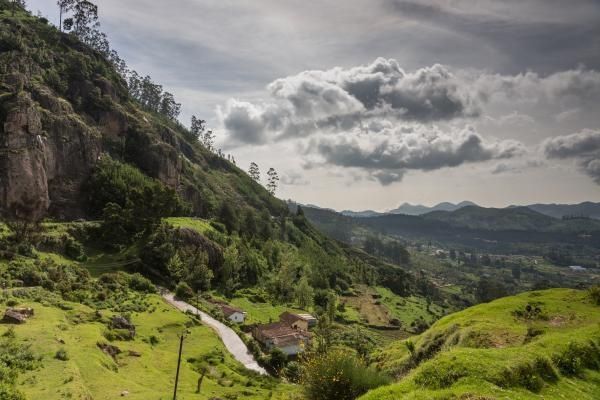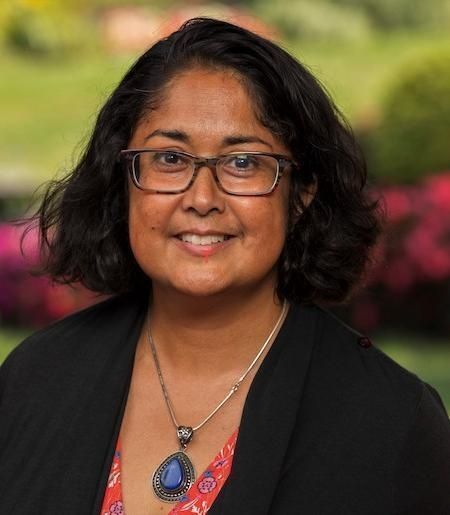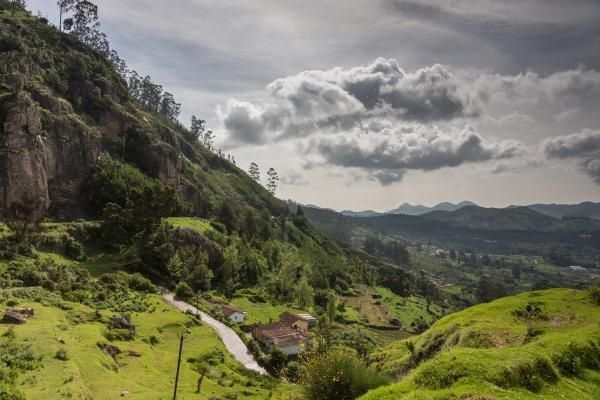South Asia Program
White House Elevates Indigenous Expertise to Inform Policy

Karim-Aly Kassam, Global Public Voices/SAP
“In order to solve a problem, we need multiple ways of knowing,” said Karim-Aly Kassam. “Other people see things because of their cultures, because of their physical and ecological experiences. They live in the mountains, they live in the Arctic; they have a nuanced perspective of their habitat, so their way of thinking is very important.”
Additional Information
Meet the Global Public Voices Fellows

Fellows Speak Out on Democratic Threats
This year’s fellows will engage with major news media on nationalism and populism, civil-military relations, international human rights, and more.
Additional Information
Cornell Summer Program in India Information Session

December 6, 2022
5:00 pm
Are you interested in the intersection of mental health and culture, global health, and community engagement? Do you want to gain field research skills and learn about indigenous communities in South India’s beautiful and fragile Nilgiris Biosphere Reserve? If so, the Cornell-Keystone Nilgiris Field Learning Program might be for you!
Additional Information
Program
South Asia Program
Summer Internships Are Here!

Undergrads, Apply by Jan. 15
Apply now for 2023 global summer internships! These in-person experiences let you polish your real-world skills and advance your career goals.
Additional Information
Waiting for the People: The Idea of Democracy in Indian Anticolonial Thought

March 23, 2023
11:25 am
It is now widely accepted that the age of decolonization was also a turning point in the history of democracy, as the vast majority of the non-European world replaced imperial rule with democratic republics. Although this fact is taken for granted, scholarly attention so far has been focused on the nationalist aspiration of anticolonial movements and their contesting visions of self-determination. In the moment of its global conquest, democracy, it may seem, was an afterthought—or, at best, a logical corollary—for anticolonial thinkers preoccupied with overcoming empire.
Focusing on colonial India and departing from the standard narratives of anticolonialism, Nazmul Sultan argues that democracy was neither a given ideal waiting to be claimed nor reducible to the concerns of territorial sovereignty. Nazmul suggests that the problem of peoplehood sat at the heart of the monumental clash between the British Empire and the Indian anticolonial movement, inspiring in the process a rethinking of the meaning of democracy for the colonial world. He will also reflect on the place of the anticolonial moment in the global history of democratic thought.
Please join us for this virtual conversation. Register here.
About the Speaker
Nazmul S. Sultan is an Assistant Professor of Political Theory in the Department of Political Science at the University of British Columbia. He is the author of Waiting for the People: The Idea of Democracy in Indian Anticolonial Thought (forthcoming with the Belknap Press of Harvard University Press). His research has also appeared in the American Political Science Review, Political Theory, and Review of Politics, among others.
Presented by the Reppy Institute for Peace and Conflict Studies. Co-sponsored by the South Asia Program, and the Gender and Security Sector Lab.
Additional Information
Program
Einaudi Center for International Studies
Reppy Institute for Peace and Conflict Studies
South Asia Program
Biden-Xi Meeting Giving Hope to Global Economy

Eswar Prasad, SAP
Eswar Prasad, professor of economics and international trade policy, discusses the talks between President Biden and Chinese Xi Jinping (video).
Additional Information
U.S. Seeks Closer Ties with India as Tension with China and Russia Builds

Eswar Prasad, SAP
“India has very deep-seated economic interests in maintaining a reliable and relatively cheap supply of oil from Russia,” says Eswar Prasad, professor of international trade policy and economics.
Additional Information
FGSS Faculty Work Luncheon with Durba Ghosh

February 17, 2023
12:00 pm
Rockefeller Hall, 190
Join Feminist, Gender, & Sexuality Studies Program
for our Faculty Work Luncheon with
Durba Ghosh, Professor of History
FRIDAY, FEBRUARY 17
12PM-1PM
190 Rockefeller Hall
My teaching and research focus on the history of British colonialism on the Indian subcontinent. I am the author of two books, and more than a dozen journal articles and book chapters; in one way or another, they all focus on the relationship between colonial agents, officials, and elites and those who were colonized. Since I arrived at Cornell in 2005, I have taught courses on modern South Asia, the British empire, gender, and colonialism. In Fall 2021, I will be teaching a new course on the Afterlives of 9/11 to think about the twentieth anniversary of this global historical event.
My recent book, Gentlemanly Terrorists, focuses on an underground radical political movement in early and mid-twentieth century India and the ways in which political violence against the British colonial state became an important, but historically underemphasized, form of protest. While Gandhi's nonviolent protest movements are often seen to be the hallmark of anticolonial protest, the book follows how the colonial state invested in security and emergency legislation to contain what they felt was an active terrorist threat. In the process of writing this book, I have become fascinated with the ways that political violence has become a central part of popular historical narratives.
My next project focuses on commemorations of freedom fighters, and the ways in which public monuments and statues to mark India's independence struggle have become a part of India's political landscape. As a part of that project, I am part of the new collaboration group "Unsettled Monuments, Unstable Heritage," funded by the Radical Collaborations initiative in the humanities.
I have written two short essays on the removal of statues in the last year: One in collaboration with Kelly King-O'Brien on the relationship between colonial and confederate statues. A more recent essay focuses on statues of Cecil Rhodes that were not installed.
At Cornell, I have been involved with the Feminist, Gender, and Sexuality Studies program, the South Asia Program, the Mario Einaudi Center for International Studies, the Society for the Humanities, the Institute for Social Sciences, the CIVIC initiative that emerged out of the Radical Collaborations projects. I currently serve on the Cornell University Press faculty board and am a member of the University Faculty Committee. Further afield, I have served on program and prize committees for the American Historical Association, American Institute of Indian Studies, Association of Asian Studies, Berkshire Conference of Women Historians, and North American Conference on British Studies.
Currently I am the inaugural director of a new program based in the College of Arts and Sciences, the Humanities Scholars Program.
Attendees are kindly requested to read "Revisiting Sex and the Family" in advance of the workshop.
RSVP for the workshop here.
Additional Information
Program
Einaudi Center for International Studies
South Asia Program
Cornell-Keystone NFLP Summer Program in India Info Session

November 15, 2022
8:00 pm
Come to the Office of Global Learning's info session to learn more about this program!
Are you interested in the intersection of mental health and culture, global health, and community engagement? Do you want to gain field research skills and learn about indigenous communities in South India’s beautiful and fragile Nilgiris Biosphere Reserve? If so, the Cornell-Keystone Nilgiris Field Learning Program might be for you!
Additional Information
Program
Einaudi Center for International Studies
South Asia Program
The Link Between Inflation and Political Fortunes

Kaushik Basu, SAP
Kaushik Basu, professor of economics, writes this piece about inflation’s influence on politics
